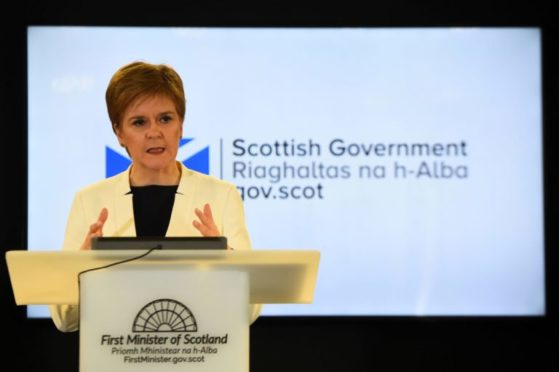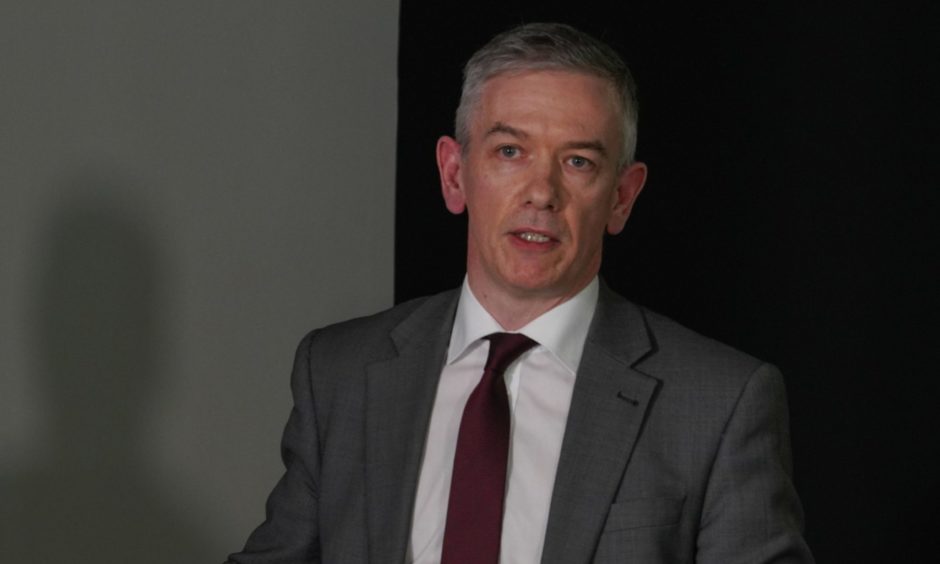Nicola Sturgeon has vowed to investigate rising numbers of deaths from cancer and dementia during the coronavirus crisis.
The first minister said “further work” had to be carried out to explain why the Covid-19 pandemic has been accompanied by a rise in deaths from other causes.
Data released by the National Records of Scotland (NRS) has revealed that the overall number of weekly deaths in Scotland has been much higher during the crisis with a large proportion not being caused by the virus.
At her daily coronavirus briefing, Ms Sturgeon said: “The overall number of deaths registered last week is again much higher than the average for the same week in previous years – something that seems to be reflected in other countries at this time.
“And while around three quarters of that difference this week can be attributed directly to Covid-19, more than 200 deaths cannot be explained in this way.”
This is an issue that we need to do further work on to make sure we understand it fully.”
First Minister Nicola Sturgeon
For the first time, the NRS statistics provided a breakdown of causes of deaths for those which were not due to the coronavirus.
Ms Sturgeon said: “The data the NRS published today provides some explanation of that (the unexplained deaths) and indicated that some of the difference appears to be a result of more people dying of cancer, and dementia and Alzheimer’s. However clearly, this is an issue that we need to do further work on to make sure we understand it fully.”
Fears that the seriously ill are not seeking NHS help
Ms Sturgeon and her medical advisers have made repeated pleas for members of the public not to neglect their health reminding them that the NHS is still open for non-coronavirus treatments.
It has been suggested that people could be dying because they are reluctant to seek medical assistance during the pandemic.
The most recent NRS date showed that the total number of all deaths registered in Scotland from April 13 to April 19 was 1,911, nearly 80% higher than the five-year weekly average of 1,067.
Covid-19 accounted for three-quarters (74%) of the 844 excess deaths in that week, at 637. That left 207 extra deaths that could not be attributed to the coronavirus.
Of those, there were 83 more Alzheimer’s and dementia deaths when compared with the five-year weekly average. Cancer deaths were up by 38. Deaths from circulatory illnesses were up by 11 and deaths from other causes were up by 101. Deaths from respiratory illnesses, other than coronavirus, were down by 26.
The number of unexplained deaths being recorded each week has fallen since the beginning of this month when there were 361.
When the figures were first released on April 9, interim Chief Medical Officer Dr Gregor Smith stated that non-coronavirus hospital wards were “eerily quiet”.
When asked about the most recent figures, Dr Smith refused to be drawn on whether the rise was down to those who usually care for cancer and dementia patients being ill with Covid-19 or looking after coronavirus sufferers.
Dr Smith said: “I think it is important we don’t make any speculation based on anecdote. There is a recognised process put in place to try and better understand these deaths over the fullness of time – whether they be from Alzheimer’s and dementia or cardiovascular disease, whether they be from cancer – to try and break down those figures a little bit better just to see exactly what we can really understand.
I don’t think it would like to be drawn any further or speculate on why these deaths may or may not have occurred.”

